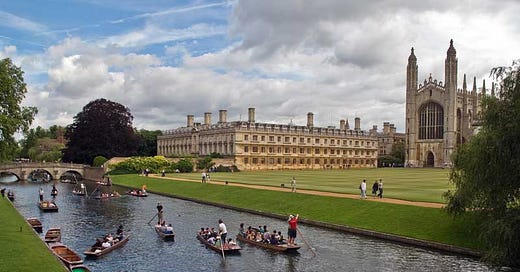by Rod D. Martin
October 8, 1998
When I was a student at Cambridge some years ago, a close friend of mine, who happened to be an important official in the Tory Party, used to bemoan the fact that Britain was being swallowed up by the socialist beast that is the European Union. He was (and is) a romantic sort, and we spent many cold afternoons along the Cam, drinking tea and fondly remembering the days of Empire and glory, with no small admixture of sadness.
One day it came to him. "You know, Rod," he said, in that most regal of accents, "what we really need to do is get together a sort of club, a partnership of all the English-speaking peoples. That's it! We can call it the English-Speaking Union; and we can trade together and keep our own governments and we'll never have to put up with the Frogs again!"
It was not a bad thought, and we have wistfully remembered it all these years.
Now, perhaps, the time has come. Late this summer, the publisher Conrad Black delivered an extraordinary lect…




